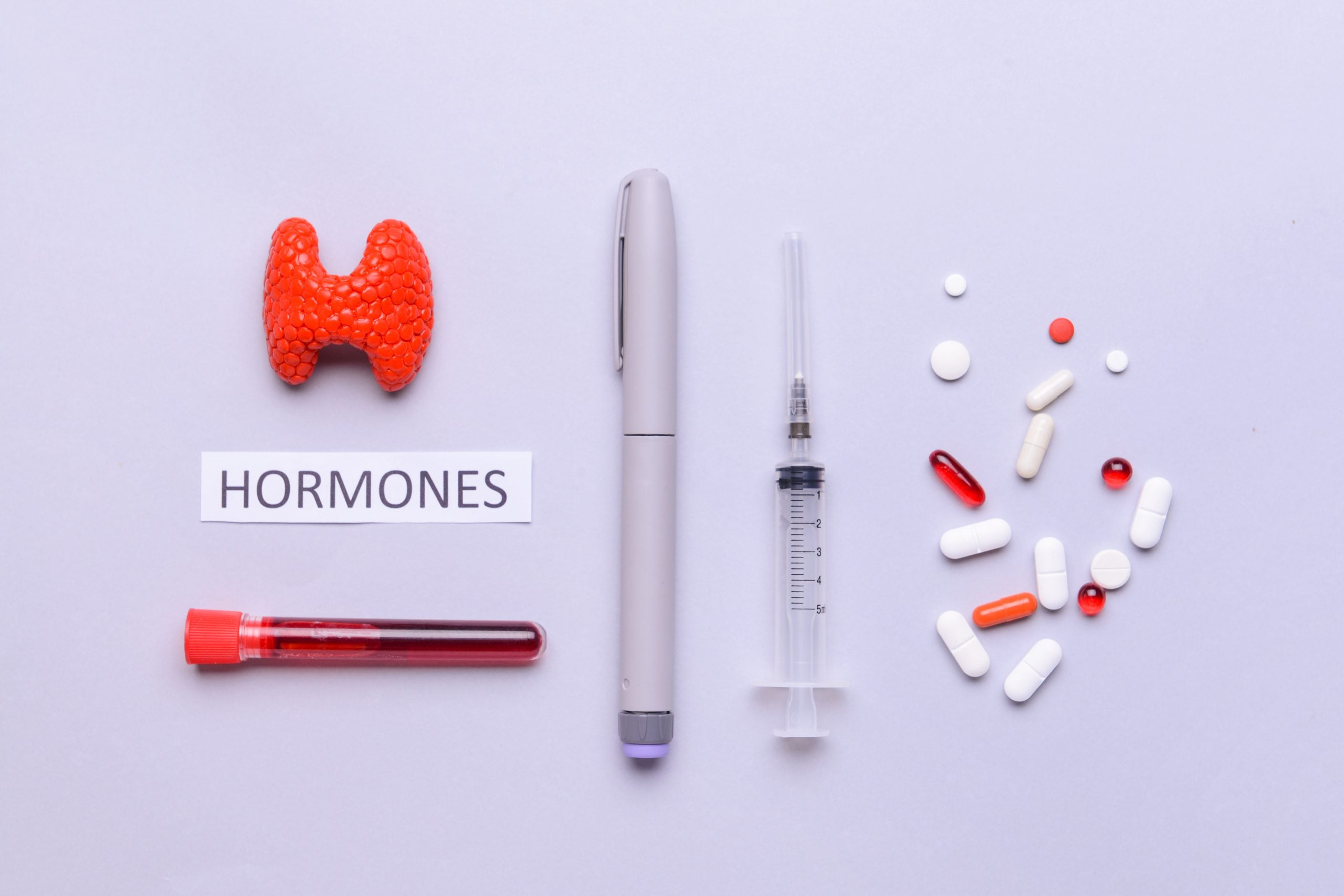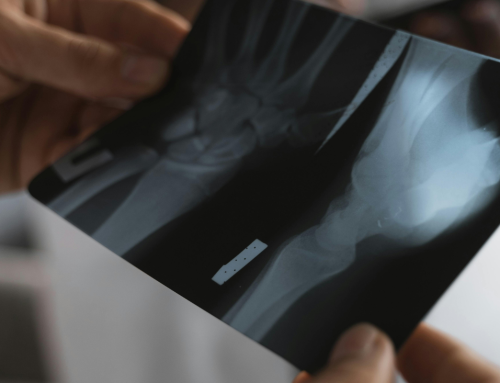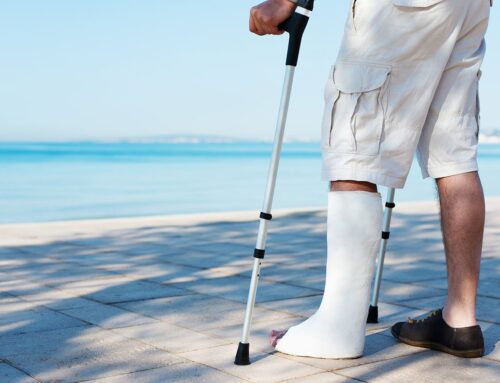Bone health is a crucial aspect of overall well-being, significantly influenced by various factors, including hormones. In Canada, osteoporosis and related fractures present substantial health challenges. Over 2.3 million Canadians live with osteoporosis, leading to a high incidence of fractures, particularly among older adults. Hormones play a vital role in maintaining bone density and facilitating fracture recovery. This article explores how hormones affect bone health and what can be done to optimize fracture healing.

Understanding the Role of Hormones in Bone Health
Hormones play a pivotal role in regulating our bodies, including bone health. They influence bone density, strength, and the ability to heal after a fracture. Two of the most crucial hormones in this regard are estrogen and testosterone. These hormones affect bone tissue's formation and resorption, determining overall bone strength and density.
Understanding how these hormones function and their impact on bone health is essential for addressing bone density and fracture recovery issues. Let's delve into the specific roles of estrogen and testosterone in maintaining bone health and supporting fracture healing.
Estrogen and Bone Density
Estrogen is essential for maintaining bone density, particularly in women. It slows down bone resorption, a process where bone is broken down, and its minerals are released into the bloodstream. During menopause, estrogen levels drop significantly, leading to increased bone resorption and a subsequent decrease in bone density. This hormonal change is a primary reason why postmenopausal women are at a higher risk of developing osteoporosis and experiencing fractures.
Testosterone and Bone Strength
In men, testosterone plays a similar role in maintaining bone density. Testosterone helps stimulate bone formation and reduce bone resorption. As men age, testosterone levels gradually decline, which can lead to decreased bone density and increased fracture risk. Hypogonadism, a condition characterized by low testosterone levels, is mainly associated with reduced bone strength and higher fracture rates.
Other Hormones Influencing Bone Health
Two other hormones play a significant role in bone health:
- Parathyroid Hormone (PTH): The parathyroid hormone regulates calcium levels in the blood, which is crucial for bone health. PTH increases blood calcium levels by stimulating bone resorption. However, excessive PTH, as seen in hyperparathyroidism, can lead to significant bone loss and increased fracture risk.
- Growth Hormone: Growth hormone is vital for bone growth and maintenance. It stimulates the production of insulin-like growth factor 1 (IGF-1), which promotes bone formation. Growth hormone deficiency can lead to reduced bone density and higher fracture susceptibility.
Hormonal Imbalances and Bone Health in Canada
In Canada, hormonal imbalances significantly impact bone health. According to Osteoporosis Canada, 80% of all fractures in people aged 50 and above are caused by osteoporosis, a condition closely linked to hormonal changes, particularly in postmenopausal women and older men.
Additionally, 1 in 3 women and 1 in 5 men over the age of 50 will experience osteoporotic fractures in their lifetime. These statistics highlight the importance of understanding hormonal influences on bone health and fracture recovery.
Enhancing Bone Health Through Hormonal Balance and Lifestyle Management
Maintaining optimal bone health requires a multifaceted approach that includes hormonal balance and lifestyle adjustments. Individuals can significantly improve their bone density and overall bone health by addressing hormonal imbalances and adopting healthy habits. Let’s dive into these bone-boosting strategies.
Hormone Replacement Therapy (HRT)
Hormone replacement therapy is a common treatment for addressing hormonal imbalances in postmenopausal women. HRT involves supplementing estrogen to reduce bone resorption and improve bone density. Studies have shown that HRT can significantly decrease the risk of fractures in postmenopausal women. However, HRT is not suitable for everyone, and it is essential to discuss the risks and benefits with a healthcare provider.
Testosterone Therapy
For men with low testosterone levels, testosterone replacement therapy can help improve bone density and reduce fracture risk. This therapy can be particularly beneficial for men with hypogonadism. As with HRT, testosterone therapy should be considered carefully under medical supervision.
Nutrition
A balanced diet rich in calcium, vitamin D, and other essential nutrients supports bone health. Calcium is crucial for bone strength, while vitamin D helps absorb calcium. Foods such as dairy products, leafy greens, nuts, and fortified cereals are excellent sources of these nutrients.
Exercise
Regular weight-bearing and resistance exercises stimulate bone formation and improve bone density. Activities such as walking, jogging, weight lifting, and yoga are particularly beneficial.
Avoiding Smoking and Excessive Alcohol
Smoking and excessive alcohol consumption can negatively affect bone health. Smoking reduces blood supply to the bones, while alcohol interferes with the balance of calcium and hormones. Reducing or eliminating these habits can significantly improve bone health.
Advanced Treatments: LIPUS Technology
When you’ve suffered from a fracture, all you can do is focus on the healing process and support your hormones. There is a way to accelerate this process. Low-Intensity Pulsed Ultrasound (LIPUS) is an innovative technology that has shown promising results in accelerating fracture healing. The Melmak LIPUS device uses ultrasound waves to stimulate bone repair processes at the cellular level. This non-invasive treatment is administered directly against the skin, sending painless mechanical forces through the tissue to enhance cellular behaviour at the fracture site.
The Melmak LIPUS device is a convenient, 20-minute, once-per-day treatment that has been proven to accelerate the healing of fresh, delayed, and non-union fractures. With over 20 years of proven results and no known side effects, the Melmak device is specifically designed for self-treatment, allowing individuals to use it in the comfort of their own homes or offices without supervision from a medical professional.
Understanding the role of hormones in bone health and fracture recovery is crucial for preventing osteoporosis and managing fractures effectively. Individuals can significantly improve their bone health by maintaining hormonal balance through medical treatments and lifestyle modifications. Additionally, innovative treatments like the Melmak LIPUS device can further support and accelerate the fracture healing process, helping individuals return to their daily activities sooner. Contact Fracture Healing to learn more about the device and order one to accelerate fracture healing.
What surprised you about the role of hormones in bone health? How are you going to support your hormones to boost your bone health? Share your thoughts with our readers in the comments below.





